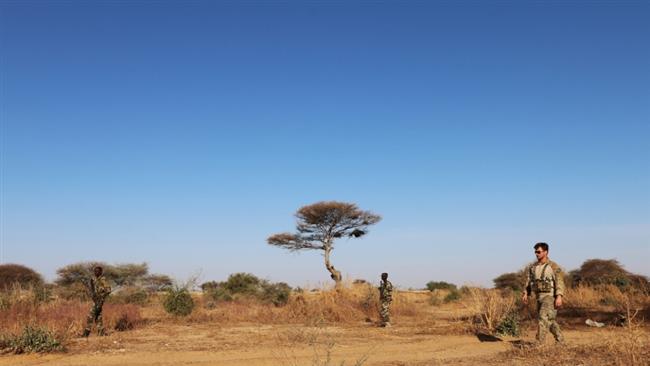Niger ambush highlights growing U.S. military involvement in Africa
The ambush that took the lives of three American Special Forces soldiers and wounded two others in Niger on Wednesday highlights the little-noticed but growing American involvement in contested pockets of Africa, where jihadist groups have taken root and Washington is rushing to backstop allies.
It is unclear what group carried out Wednesday’s deadly attack, but Nigerien forces have been fighting with with jihadist groups like the Islamic State-affiliated Boko Haram and al Qaeda in the Islamic Maghreb in the area where the attack occurred.
The soldiers, the first U.S. casualties in Niger, were advising and assisting Nigerien troops fighting terrorists, U.S. Africa Command spokesperson Robyn Mack said. It’s part of a broader effort by U.S. troops to help African armies better track and combat terror groups which have proliferated across the region in recent years in countries like Niger, Cameroon, and Chad.
The United States has long maintained a drone base in Niger’s capital of Niamey to monitor the movements of al-Qaida and Islamic State-affiliated groups who slip back and forth across often porous borders with Mali, Nigeria, and Chad.
To track those groups, the Trump administration has moved ahead with Obama-era plans to open a second U.S. drone base in the country near Agadez, which already houses U.S. troops. Overall, there are approximately 800 U.S. forces currently on the ground in Niger, one of the larger American footprints on the continent, charged primarily with training Nigerien forces and providing intel and reconnaissance support.
The new drone base in Niger will be the latest of about a dozen small bases (“cooperative security locations” in Pentagon-ese) spread throughout the continent. The small bases house special operations forces, logistics personnel, trainers, and manned and unmanned aircraft, and are used as supply centers and jumping off points for missions.
Across Africa, the U.S. military footprint has counterterror operations in mind. The largest U.S. base on the continent is in Djibouti, in the Horn of Africa, which gives U.S. forces the ability to launch airstrikes and special operations raids into nearby Yemen and Somalia, while also covering the critical Bab al Mandeb waterway which leads into the Red Sea.
Other small bases dot the landscape, including in Somalia, where Foreign Policy has reported on one outpost in the port of Kismayo, and there a base in neighboring Kenya, known as Camp Simba used for drone operations. Both bases have been active in the international fight against al-Shabaab, an al-Qaida-linked Islamist group in Somalia.
Tunisia has also confirmed that Americans operate unarmed drones used for monitoring the continuing fighting in neighboring Libya, which has seen a huge influx of various al-Qaida offshoots, the Islamic State, and a variety of local militias and criminal groups that have been smuggling thousands of migrants into Europe.
American forces are also active in Chad, helping push back against Boko Haram, which is mostly active in Nigeria and its eastern border regions. Chad is one of the nerve centers of the international counterterror fight, with U.S., French, and British troops working alongside local forces at the Multinational Joint Task Force in the capital of Ndjamena. Chad’s central role in battling terrorism made the country’s inclusion on the latest U.S. travel ban all the more puzzling.
The U.S. fight against Boko Haram is also supported by a small drone facility in the skinny northern neck of Cameroon, squeezed between Chad and Nigeria. Since 2015, drones there have run surveillance of the border to sniff out Boko Haram fighters, and there are about 300 American troops there now. The Pentagon is currently investigating whether Americans were present at another Cameroonian base where U.S.-trained security forces allegedly detained and tortured civilians.
U.S. involvement is only slated to grow. Africa Command wants five manned surveillance aircraft to fly full-time from several locations across the continent. In the meantime, U.S. strikes against terrorists are proceeding at a greater pace in the Trump administration than in the Obama years.
In May, one Navy SEAL was killed and two others were wounded in Somalia in a firefight with al Shabab fighters. That was the first American combat death there since the ‘Black Hawk Down’ incident in 1994.
Culled from Chicago Tribune





